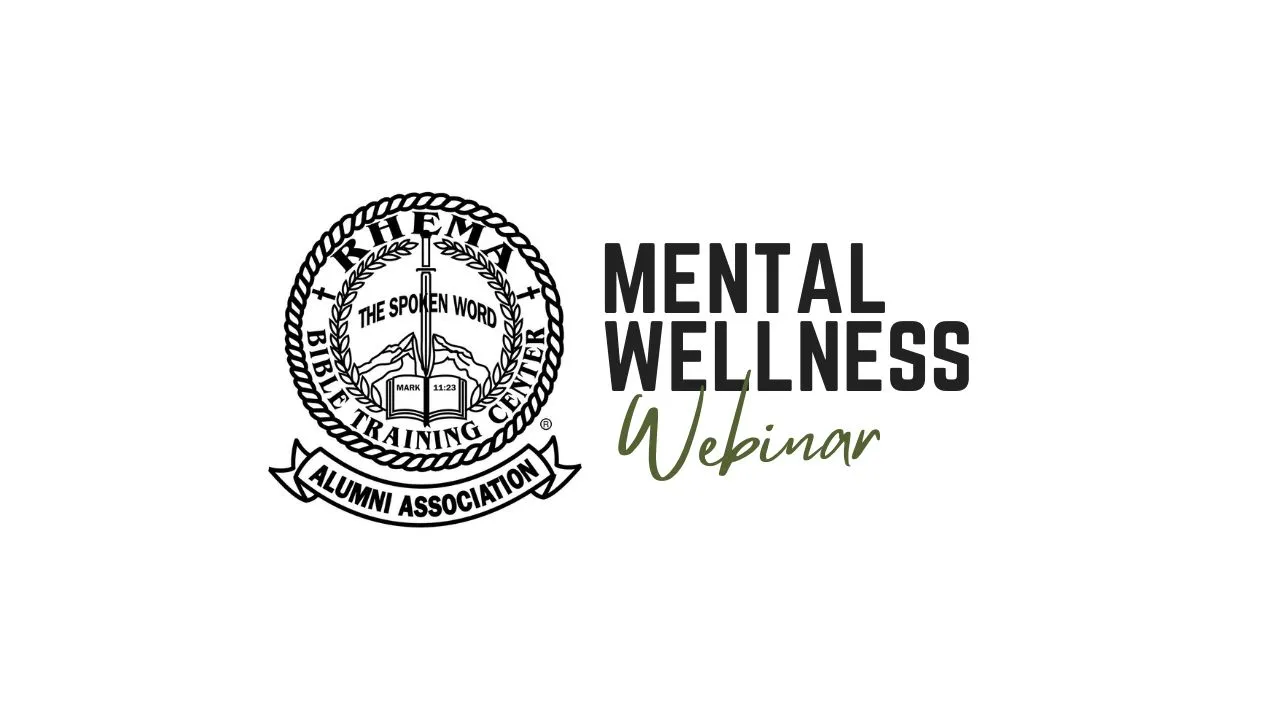
Building Capacity to Suffer Well
by Maumo Mubila-Kakoma (Class of 2019)
Friday, 25 July 2025
On Thursday, 24 July 2025, the Rhema Zambia alumni community hosted a “Mental Wellness Webinar” themed “Grace Under Pressure: Thriving Through Tough Times as Christian Leaders”. We invited vulnerable discussion to answer questions such as:
- How do you lead with grace when you’re walking through the fire?
- What does it really mean to suffer well as a Christian?
- Have you ever asked God, “Where are You in this pain?”
As Christian leaders, we are often pouring out and giving our best to others, pushing through challenges, and showing up strong. But in the process, we sometimes forget to pause, breathe, and refill. We silence our own struggles, forgetting that vulnerability is not weakness; it’s part of the healing.
Our guest speakers brought a wealth of empathy, Biblical wisdom and experience to the conversation. We were blessed by their time and their openness:
- Dr Francisca Bwalya-Chama—who brought medical perspective
- Bishop Fortune Lubinda Mwiza—who brought perspective from the clergy
- Dr David Kombe—who brought entrepreneurship perspective
Below are some reflections after the discussion. Some of the ideas are adapted from the teachings of Dr. RaQuel Hopkins of The Capacity Experts.
What is Capacity?
Capacity is not about being strong. It’s about being present in your pain without being overwhelmed by it.
As Christian leaders, we often feel pressured to be “okay” all the time—but spiritual maturity includes the ability to hold space for grief, disappointment, and hardship, while remaining rooted in God’s truth.
Key Concepts
1. Pain is not the problem. How we handle pain is the problem
Leaders must stop trying to avoid or rush through suffering. We are called to suffer well. To walk through hard seasons with honesty, faith, and purpose.
Key verse—Romans 5:3–5 (NLT):
3 We can rejoice, too, when we run into problems and trials, for we know that they help us develop endurance. 4 And endurance develops strength of character, and character strengthens our confident hope of salvation. 5 And this hope will not lead to disappointment. For we know how dearly God loves us, because he has given us the Holy Spirit to fill our hearts with his love.
2. Make space for pain
Ignoring or numbing pain does not glorify God. We must give ourselves permission to feel—and bring those feelings to God and a trusted community.
Lament is biblical.
See Psalm 42:5, Psalm 77:2-3, Lamentations 3:19-23.
3. Suffering is sacred—it is where capacity is built
Your trials are not wasted. They are classrooms of growth. God often shapes leaders in the fire—not just through blessing.
Isaiah 43:2
When you pass through the waters, I will be with you…
4. Faith + Emotional Honesty = Real Resilience
True resilience is not spiritual denial, but spiritual anchoring. You can be in pain and still be full of faith.
2 Corinthians 4:8–9
Pressed but not crushed…
5. Capacity is built in quiet moments, not crisis alone
Daily rhythms of reflection, connection, and honesty with God increase your ability to suffer well when storms come.
Reflection Questions for Leaders
- What pain am I rushing through instead of facing with God?
- How can I build a leadership culture that normalizes lament and healing?
- Who holds space for my pain?
- Am I growing my capacity daily, or only reacting in crisis?
God is not disappointed by your struggle. He is shaping your capacity to lead with deeper compassion, authenticity, and power. Don’t waste the wilderness—it’s where leaders are made.